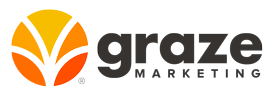A fast loading website does more than just offer a great user experience. In fact, page speed is a major factor that can impact your search engine optimization (SEO). Google’s mission is to highlight the most relevant and user-friendly websites when someone conducts a search. A slow website makes for a bad experience and therefore Google doesn’t want to highlight a page like that.
Page speed is how fast the content on your website loads and it is very important to the user experience as it determines bounce rates, amount of time spent on a page, etc. The optimal load time is 2-3 seconds for desktop browsers and around 5 seconds on mobile searches. Faster sites drive more visits and less site abandonment which ultimately increase your likelihood for leads and sales. On the other hand, slower sites can result in people abandoning before the page even loads.
What follows here is a variety of the most common factors that impact your website page speed. While not an exhaustive list, this captures some of the most common issues to look out for.
Image, Graphics & Photos
The biggest culprit of slow loading websites is images. Most businesses, particularly small businesses don’t have a professional website designer and developer on staff to make sure any new pages or content is optimized for the web. For this reason, many create new pages and upload images that aren’t sized correctly for the web. The image issue is a two-fold problem: actual image size and compression (file size). When the image is exactly the size that it will be on the web, the browser can load quicker because it doesn’t need to resize the image to proper dimensions based on that user’s screen size. In addition, by compressing photos down to smaller sizes (without losing quality), your image can load faster. There are tools that help with this, but it is better to optimize images before uploading first.
Content Distribution Network (CDN)
CDNs are the internet’s delivery networks that are used to geographically distribute a website’s content. Many CDNs offer a variety of servers around the country or world to bring better Internet performance to end users wherever they are. If a CDN has high availability and performance, page speed will increase. It is important to do your research when it comes to CDNs in order to maximize your page speed for your website.
Utilize Browser Caching
When users visit a website, a browser will usually save that site’s information so it does not have to reload the entire webpage for future visits. Enabling caching enables a website to preload, prefetch, and pre-connect data. Businesses should cache their information every time a website change takes place in order to make sure site information is always fresh and up-to-date. This tactic is very advantageous for increasing page speed.
Technical Optimization
The more “light-weight” your website is, the higher the page speed. It is important to optimize your website code, which means to remove all unnecessary characters and unused code on your website. In addition, there are other ways to compress your style sheets, HTML and JavaScript code via file compression. Minification is another strategy for optimizing delivery of your code. There are various ways and tools to help you do this, but definitely something to leave to a professional.
Hosting Companies & Providers
Web hosting services are the ones actually making your website visible to the world. All websites use a host service, and there are many different services who vary in quality and service. Here are some characteristics you should look for when analyzing a web hosting service for your business’s website: 24/7 support (online chat and phone), easy usage, free or low cost, unlimited storage, security and spam protections, email services, and more. If you have any issues with your host service you might want to look at utilizing a virtual private server (VPS) or a dedicated server with your host, or perhaps explore other hosting companies.
Third-Party Scripts
Third-party scripts ultimately slow down the loading of a website because it is pulling content from a different site and posting it to your site. The most common scripts people add to websites are videos (YouTube, Vimeo), live chat features and other applications. While these scripts might be very important to your site design or your page content, you must try and minimize your usage of these scripts as they can drastically slow down your website.
Conclusion
The first step in addressing your website page speed is testing it. There are a variety of tools that exist to help you do this and here are three of the most common ones we use when analyzing a client’s website speed:
- Site Speed Test (GT Metrix): https://gtmetrix.com/
- Site Speed Test (Pingdom): https://tools.pingdom.com/
- Mobile Page Speed Test (Google): https://developers.google.com/speed/pagespeed/insights/
Once you’ve conducted your analysis, you might see a lot of insights that aren’t very clear to you. You can either do your research online to educate yourself on these various speed issues, or you can work with a professional to help you navigate your results. All in all, your page speed is a critical factor to your SEO and needs to be addressed ASAP.

